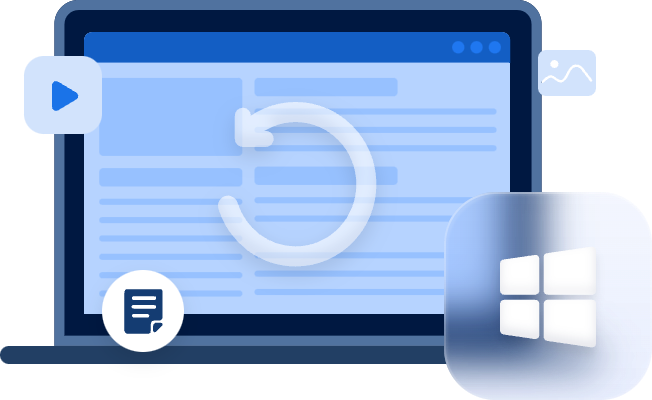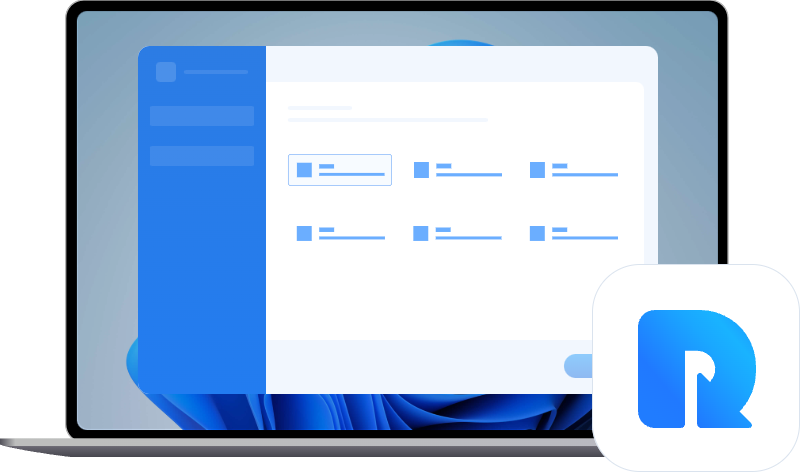Why Is Chromebook Slow? Learn How to Speed It Up Effectively
This exhaustive guide thoroughly investigates the common issues causing Chromebook sluggishness and provides detailed, step-by-step instructions, including insights into the MyRecover tool, to boost its speed.
In the fast-evolving digital landscape, a slow Chromebook can pose a significant hindrance to productivity and user satisfaction. To address this concern, understanding the underlying causes of sluggishness is crucial. Let's delve into the common factors contributing to a slow Chromebook and explore effective methods to accelerate its speed.
Common Reasons for Chromebook Sluggishness
Overloaded Cache and Cookies
One of the primary culprits behind a sluggish Chromebook is the accumulation of cache and cookies. These remnants of online activity clutter the system, resulting in slower performance.
Steps to Clear Cache and Cookies:
- Open the Chrome browser settings.
- Navigate to "Privacy and Security."
- Click on "Clear Browsing Data."
- Select "Cached images and files" and "Cookies and other site data."
- Click "Clear Data."
Insufficient RAM
Insufficient RAM is a common bottleneck affecting multitasking capabilities, leading to sluggish performance. Learn how to optimize RAM usage for a smoother Chromebook operation.
Steps to Optimize RAM Usage:
- Identify memory-hungry tabs and applications using the Task Manager (Shift + Esc).
- Close unnecessary tabs and applications to free up RAM.
- Prioritize tasks and allocate resources efficiently.
Outdated Chrome OS
Running an outdated operating system can result in compatibility issues, security vulnerabilities, and reduced efficiency. Stay up to date to ensure optimal Chromebook performance.
Steps to Update Chrome OS:
- Click on the system clock in the bottom right corner.
- Select "Settings."
- Click on "About Chrome OS."
- Click "Check for Updates."
- Follow on-screen instructions to install updates.
Unnecessary Extensions and Apps
Excessive browser extensions and unused apps consume valuable system resources, impacting Chromebook speed. Streamline your Chromebook by removing unnecessary extensions and apps.
Steps to Remove Unnecessary Extensions:
- Open Chrome browser settings.
- Select "Extensions" from the left menu.
- Identify unnecessary extensions and click "Remove."
- Go to "Apps" and uninstall unused applications.
Methods to Speed Up Your Chromebook
Clear Cache and Cookies
Regularly clearing the cache and cookies is essential to enhance privacy and free up valuable system resources. This not only ensures a smoother browsing experience but also contributes to overall system efficiency.
Step-by-Step Guide:
- Open Chrome browser settings.
- Navigate to "Privacy and Security."
- Click on "Clear Browsing Data."
- Select "Cached images and files" and "Cookies and other site data."
- Click "Clear Data."
Optimize RAM Usage
Efficiently managing your Chromebook's RAM usage is critical for improved performance. Identify and close unnecessary tabs and applications, and prioritize tasks to prevent memory overload.
Step-by-Step Guide:
- Open the Task Manager (Shift + Esc).
- Identify memory-hungry tabs and applications.
- Close unnecessary tabs and applications.
- Prioritize tasks for efficient resource allocation.
Update Chrome OS
Regularly updating your Chrome OS ensures you benefit from the latest enhancements, bug fixes, and security patches. Keeping your operating system up to date is integral to optimal Chromebook performance.
Step-by-Step Guide:
- Click on the system clock in the bottom right corner.
- Select "Settings."
- Click on "About Chrome OS."
- Click "Check for Updates."
- Follow on-screen instructions to install updates.
Remove Unnecessary Extensions
Identifying and removing unnecessary browser extensions and applications is crucial for optimizing your Chromebook. Streamline your device to enhance speed and responsiveness.
Step-by-Step Guide:
- Open Chrome browser settings.
- Select "Extensions" from the left menu.
- Identify unnecessary extensions and click "Remove."
- Go to "Apps" and uninstall unused applications.
MyRecover: A Game-Changing Solution
Understanding MyRecover
MyRecover emerges as a powerful optimization tool specifically designed for Chromebooks. Gain insights into how this tool can address performance issues and revitalize your device for a seamless user experience.
Features of MyRecover
Explore the robust features of MyRecover, including:
System Cleanup: Remove unnecessary files and optimize storage space.
Performance Enhancement: Enhance overall system speed and responsiveness.
Automated Maintenance Tasks: Schedule routine maintenance for consistent optimal performance.
Steps to Recover with MyRecover
Follow these detailed step-by-step instructions to leverage MyRecover and recover your Chromebook's speed effectively:
Step 1: Download and Install MyRecover
Visit the official MyRecover website and follow the download and installation instructions tailored for Chromebooks.
Step 2: Launch MyRecover
Open the MyRecover application and familiarize yourself with the user-friendly interface.
Step 3: Initiate System Cleanup
Click on the "Cleanup" option within MyRecover to remove unnecessary files and optimize storage for improved performance.
Step 4: Enhance Performance
Navigate to the "Performance Enhancement" section in MyRecover and follow the prompts to boost your Chromebook's speed.
Step 5: Schedule Automated Maintenance
Set up scheduled maintenance tasks within MyRecover to ensure consistent optimization and peak performance.
Conclusion
Revitalizing your slow Chromebook is not only possible but achievable with the right knowledge and tools. Incorporate the outlined methods, including leveraging MyRecover, to embark on a journey of enjoying a seamless and efficient computing experience.
Frequently Asked Questions (FAQs)
How often should I clear my Chromebook's cache and cookies?
It's recommended to clear cache and cookies at least once a month to ensure optimal performance.
Can MyRecover be used on other devices?
Currently, MyRecover is designed specifically for Chromebooks, offering tailored solutions for their optimization.
Will updating Chrome OS erase my data?
No, updating Chrome OS does not delete your data. However, it's advisable to back up important files before performing updates.
Are there alternatives to MyRecover for speeding up Chromebooks?
While MyRecover is highly effective, other optimization tools and manual methods exist. Choose the one that aligns with your preferences and needs.
How can I check my Chromebook's current RAM usage?
Navigate to the task manager by pressing Shift + Esc, and you'll find detailed information on your Chromebook's RAM usage.


